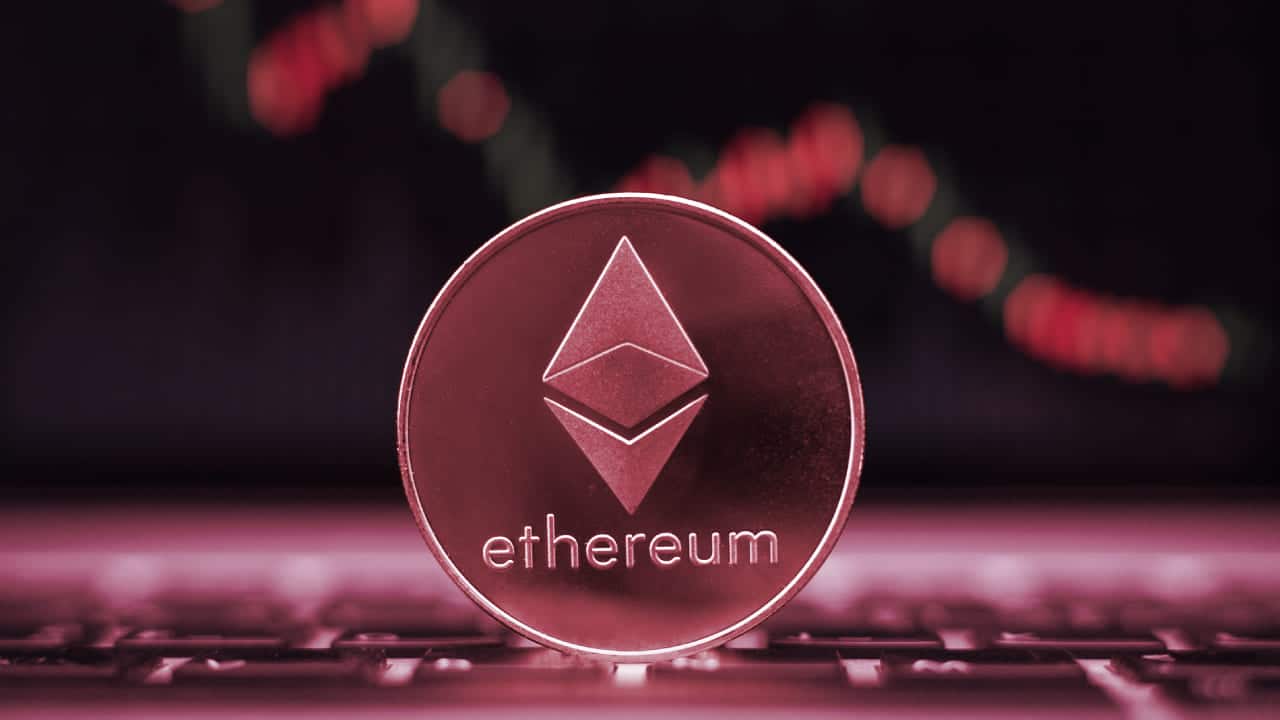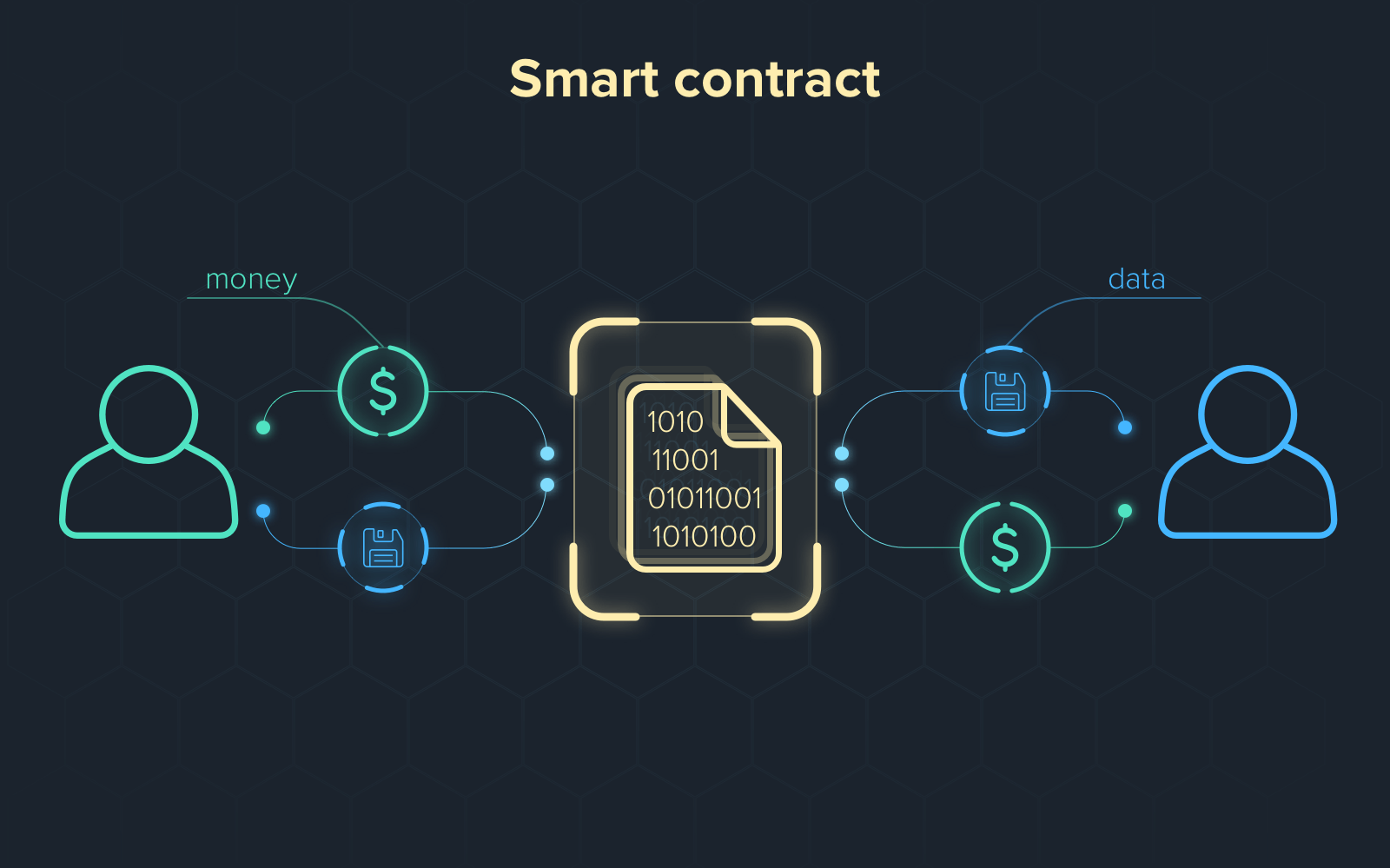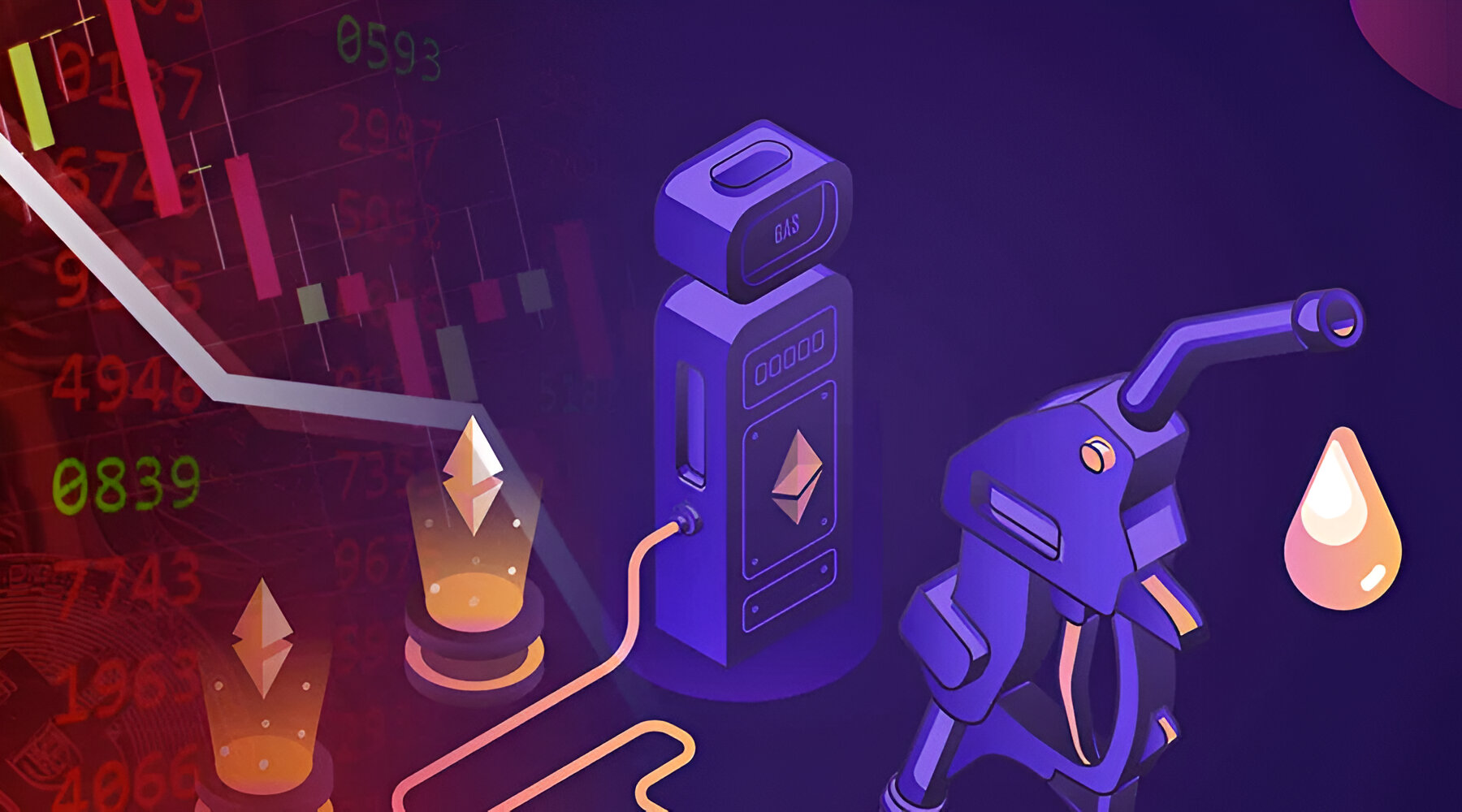Introduction
Welcome to the world of smart contracts! In today’s digital age, where technology constantly evolves, smart contracts have emerged as a revolutionary concept that promises to transform the way we conduct transactions and execute agreements. These self-executing contracts, powered by blockchain technology, eliminate the need for intermediaries and facilitate secure, transparent, and automated transactions.
In this article, we will explore the various aspects of smart contracts, including how they work, their associated costs, and why they have become an integral part of many industries. So, let’s dive in and unravel the mysteries behind smart contracts!
Smart contracts are computer programs that store and automatically execute predefined terms and conditions of an agreement between multiple parties. Unlike traditional contracts, smart contracts are executed digitally and operate on a decentralized, immutable blockchain network. They leverage the power of cryptography to ensure the security and integrity of the transactions.
A smart contract acts as a middleman, enabling two or more parties to interact directly without the need for intermediaries such as banks, lawyers, or brokers. This eliminates the chances of fraud, manipulation, or error, as the terms and conditions of the contract are embedded in the code and are executed automatically when specified conditions are met.
Smart contracts are built using programming languages, such as Solidity for Ethereum, and are deployed on blockchain platforms like Ethereum or Binance Smart Chain. Once deployed, they become a permanent part of the blockchain network and can be accessed, executed, and verified by anyone with the necessary permissions.
What are smart contracts?
Smart contracts are self-executing contracts with the terms and conditions of an agreement directly written into the code. They operate on the blockchain, ensuring transparency, security, and automation of transactions without the need for intermediaries.
Think of a traditional contract that you might sign for buying a house. It involves multiple parties, such as the buyer, seller, and the real estate agent. The contract goes through various stages, including negotiation, drafting, signing, and eventual execution. It may also require the involvement of lawyers and the payment of fees.
With smart contracts, this entire process is streamlined and automated. The terms and conditions of the agreement are encoded into a smart contract and stored on a blockchain network. The contract is executed automatically when pre-defined conditions are met, without the need for human intervention.
Smart contracts leverage the decentralized nature of blockchain technology, making them tamper-proof and immutable. Once a smart contract is deployed on the blockchain, it becomes part of a distributed ledger that is accessible and auditable by all participants in the network.
Smart contracts not only facilitate financial transactions but also enable the execution of complex operations. They can be used for a wide range of purposes, including supply chain management, digital identity verification, crowdfunding, insurance claims processing, and much more. By eliminating the need for intermediaries, smart contracts not only save time and reduce costs but also minimize the chances of fraud, error, and disputes.
It is important to note that smart contracts are not a replacement for traditional legal contracts. Instead, they complement the existing legal framework by automating the execution and enforcement of contractual obligations.
Now that we have a basic understanding of what smart contracts are, let’s explore how they work in the next section.
How do smart contracts work?
Smart contracts operate on a decentralized network, typically a blockchain, and follow a predefined set of rules and conditions encoded in the contract’s code. Let’s break down the process of how smart contracts work:
- Creation: Smart contracts are created using programming languages specifically designed for smart contract development, such as Solidity for Ethereum. The contract’s code defines the specific terms and conditions of the agreement.
- Deployment: Once the smart contract’s code is written, it needs to be deployed on a blockchain platform. The most commonly used platforms for smart contracts are Ethereum and Binance Smart Chain. Once deployed, the contract becomes immutable and is recorded on the blockchain.
- Execution: Smart contracts automatically execute when the conditions specified in the code are met. For example, in a real estate smart contract, the transfer of ownership may be triggered once the buyer has provided the agreed-upon payment and the seller has fulfilled the necessary requirements.
- Validation: The execution of smart contracts is validated by the decentralized network of nodes running the blockchain. These nodes verify and confirm the transaction, ensuring its accuracy and security.
- Trust and Transparency: Smart contracts bring trust and transparency to transactions by eliminating the need for intermediaries. The terms and conditions of the agreement are encoded in the contract’s code, which is visible to all participants on the blockchain network.
To interact with a smart contract, users need a digital wallet compatible with the blockchain platform on which the contract is deployed. This wallet allows users to send transactions and interact with the smart contract’s functions.
Smart contracts are self-executing and irreversible. Once deployed on the blockchain, they cannot be altered or tampered with. This ensures the integrity and immutability of the contractual obligations.
Additionally, smart contracts can be programmed to include conditional statements, loops, and other logical operations. This flexibility allows for the creation of complex agreements that can automatically handle various scenarios and edge cases.
Overall, smart contracts provide a secure, efficient, and transparent way to execute agreements. They eliminate the need for intermediaries, reduce costs, and minimize the chances of fraud or dispute. With their automated execution and decentralized nature, smart contracts are leading the way towards a more streamlined and trustworthy digital economy.
The costs associated with smart contracts
While smart contracts offer numerous benefits, it’s important to understand that there are costs involved in their implementation and operation. Let’s explore the various factors that contribute to the costs associated with smart contracts:
- Gas fees and transaction costs: Smart contracts on blockchain platforms like Ethereum require the payment of gas fees, which are the computational costs for executing a transaction or smart contract function. Gas fees can vary depending on network congestion and the complexity of the smart contract. As the number of transactions and computational requirements increase, so do the gas fees.
- Complexity of the smart contract: The complexity of a smart contract can impact its cost. Smart contracts with intricate logic, multiple conditions, and a large number of functions may require more development and auditing time, increasing the overall cost of implementation.
- Smart contract development and deployment costs: Hiring skilled developers to create and deploy smart contracts can be a significant cost. Developers experienced in smart contract programming languages, such as Solidity, often command higher rates due to their specialized skills and knowledge.
- Security audits and upgrades: Ensuring the security and integrity of smart contracts is crucial. Regular security audits and updates may be necessary to identify and fix potential vulnerabilities. These additional steps contribute to the overall cost of maintaining and securing smart contracts.
- Third-party services: In some cases, third-party services may be required to interact with certain smart contracts. These services may charge fees for accessing or utilizing the functionalities provided by the smart contracts.
It’s important to carefully consider these costs when planning to implement smart contracts. While they offer long-term benefits, initial investment and ongoing expenses should be factored into the decision-making process.
Despite these costs, smart contracts often prove to be more cost-effective than traditional contracts in the long run. The elimination of intermediaries, streamlined processes, and increased efficiency can result in significant cost savings for businesses and individuals.
Understanding the costs associated with smart contracts allows for better planning and budgeting, ensuring a successful and cost-efficient implementation of this transformative technology.
Gas fees and transaction costs
Gas fees and transaction costs are essential considerations when it comes to smart contracts on blockchain platforms. Gas fees refer to the fees paid by users to execute transactions or perform actions on the blockchain network.
In the context of smart contracts, gas fees are incurred whenever a transaction triggers a function within the contract. These fees exist to incentivize and compensate miners or validators on the network for including the transaction in a block and executing the associated computations.
The calculation of gas fees is based on the complexity of the smart contract code and the amount of computational resources required to process the transaction. Each operation within the code, such as mathematical calculations or storage manipulation, consumes a certain amount of gas.
Gas fees are typically denominated in the native cryptocurrency of the blockchain platform, such as Ether (ETH) for Ethereum. The exact cost of each gas unit is variable and determined by supply and demand dynamics on the network. During periods of heavy network congestion, gas fees tend to increase due to the limited capacity available to process transactions.
Gas fees play a crucial role in prioritizing and regulating network activity. Higher transaction fees incentivize miners to prioritize a transaction, ensuring faster execution and confirmation. Conversely, lower transaction fees may result in longer processing times or even the exclusion of the transaction from block inclusion.
It’s important to consider gas fees when estimating the costs associated with smart contracts. The complexity of a smart contract, including the number of operations or computations involved, directly impacts gas consumption and, consequently, the associated fees.
Gas fees can vary significantly based on factors such as network congestion and the gas price set by users willing to pay for faster transaction processing. To optimize costs, users can adjust their gas price or opt for lower-priority transactions during times of high network activity.
By carefully managing gas fees and transaction costs, participants in smart contract ecosystems can strike a balance between cost-efficiency and timely execution.
As blockchain technology continues to evolve, efforts are being made to improve scalability and address the issue of high gas fees. Innovations such as layer 2 solutions and alternative consensus mechanisms aim to reduce transaction costs and increase throughput, making blockchain-based smart contracts more accessible and economically viable.
Complexity of the smart contract
The complexity of a smart contract plays a significant role in determining its cost and overall feasibility. As smart contracts become more intricate and sophisticated, their development, deployment, and maintenance become more challenging and time-consuming.
Smart contract complexity can be attributed to several factors:
- Logic and conditions: Smart contracts often involve multiple conditional statements and complex decision-making processes. The more conditions and logic branches that need to be encoded in the contract, the higher the complexity.
- Data management: Smart contracts may require the storage and manipulation of various types of data, such as user input, transaction history, or external data sources. Handling and organizing this data within the contract code can increase complexity.
- Integration with external systems: In some cases, smart contracts may need to interact with external systems or oracles to access off-chain information. Integrating these external dependencies requires additional development effort and can add complexity to the contract logic.
- Security considerations: As the complexity of a smart contract increases, so does the potential for vulnerabilities and security risks. Complex contracts may require thorough security audits to identify and mitigate potential vulnerabilities, which adds to the overall cost.
The complexity of a smart contract affects not only its development but also its operation. More complex contracts require more computational resources, resulting in higher gas fees and longer transaction processing times. This can impact the user experience and the overall efficiency of the contract.
Smart contract developers must carefully balance the need for complexity with the practicality and cost-effectiveness of the contract. It is essential to strike a balance between a contract’s functionality and its ability to efficiently execute transactions without excessive costs or delays.
As the ecosystem of smart contracts evolves, frameworks and best practices are emerging to simplify the development process and reduce complexity. Code libraries, development tools, and reusable templates help streamline the creation and deployment of smart contracts, making them more accessible to developers of varying skill levels.
Overall, balancing the complexity of a smart contract with its feasibility, cost, and security considerations is crucial. By carefully assessing the requirements and functionality needed, developers can create efficient and effective smart contracts that meet the needs of their intended use cases.
Smart contract development and deployment costs
The development and deployment of smart contracts involve various costs, ranging from hiring skilled developers to deploying the contracts on blockchain platforms. Let’s explore the different factors that contribute to the overall costs:
- Developer expertise: Smart contract development requires specialized skills and knowledge of programming languages like Solidity for Ethereum. Hiring experienced developers who are well-versed in smart contract development and the associated best practices may come at a higher cost.
- Design and planning: Before the development process begins, careful design and planning are necessary to ensure that the smart contract fulfills its intended purpose. This includes analyzing the requirements, defining the contract’s functionalities, and creating an architecture that supports scalability and security.
- Code development: The actual coding of the smart contract involves writing the contract’s logic and functionalities according to the predefined requirements. This process can be time-consuming, especially for complex contracts, and the cost may vary depending on the complexity of the contract and the developer’s hourly rate.
- Deployment on blockchain platforms: Deploying a smart contract on a blockchain platform, such as Ethereum or Binance Smart Chain, incurs costs in the form of transaction fees. These fees are required to upload the contract onto the blockchain network and make it accessible for execution.
- Testing and auditing: To ensure the reliability and security of a smart contract, thorough testing and auditing are essential. Running comprehensive test cases, identifying and fixing bugs, and conducting security audits may require additional resources and time.
- Documentation and maintenance: Proper documentation of the smart contract’s functionalities, instructions, and usage guidelines is essential. Regular updates and maintenance may also be necessary, especially when introducing new features, fixing bugs, or ensuring compatibility with updates to the underlying blockchain platform.
The costs associated with smart contract development and deployment will vary based on the complexity of the contract, the platform chosen, and the developer’s rates. It is advisable to budget for these costs and consider them as initial investments in leveraging the benefits of smart contracts.
It’s worth noting that once a smart contract is deployed on the blockchain, its execution becomes decentralized and transparent. This reduces ongoing operational costs, such as manual verification or dispute resolution, which are common in traditional contract management.
As the adoption of smart contracts continues to grow, the availability of development tools, libraries, and standardized frameworks is increasing. This can help streamline the development process, lower development costs, and improve the overall efficiency of creating and deploying smart contracts.
Considering the long-term benefits and potential cost savings offered by smart contracts, the initial investment in development and deployment is often outweighed by the advantages gained in terms of efficiency, security, and reduced reliance on intermediaries.
Security audits and upgrades
Ensuring the security and integrity of smart contracts is paramount in their implementation. Smart contracts are deployed on public blockchain networks, making them accessible to anyone. The code is transparent and immutable, which means any vulnerabilities or mistakes in the code can have severe consequences. Therefore, conducting security audits and performing regular upgrades are critical to maintaining the reliability and trustworthiness of smart contracts.
Security audits involve a thorough review of the smart contract code by independent experts or specialized firms. These audits aim to identify potential vulnerabilities, loopholes, or weaknesses in the contract’s logic or implementation. Auditors analyze the code for security best practices, adherence to standardized guidelines, and potential attack vectors.
Audits can uncover critical flaws that could be exploited by malicious actors, leading to financial losses or breaches of user data. By conducting these audits, developers can rectify any issues identified and enhance the overall security of the smart contract.
Regular upgrades are necessary to address identified vulnerabilities and improve the functionality or efficiency of the smart contract. Updates may include bug fixes, performance optimizations, or the addition of new features to enhance the contract’s capabilities.
Upgrades can be initiated by the contract owner or through consensus mechanisms built into the underlying blockchain platform. In some cases, upgrades may require contract users to manually migrate their data or interact with the updated contract version.
It is crucial to handle upgrades carefully to maintain compatibility and ensure a seamless transition for contract users. Communication, documentation, and community engagement are essential during the upgrade process to provide clarity and assistance to all stakeholders.
While security audits and upgrades come with associated costs, they are necessary investments to protect the interests of all parties involved in the smart contract ecosystem. By conducting thorough security audits and implementing regular upgrades, the risk of vulnerabilities and exploits can be significantly minimized.
Considering the ever-evolving nature of blockchain technology and the emergence of new attack vectors, continuous monitoring and proactive measures for security should be a priority for smart contract developers. By staying vigilant and responsive to security concerns, smart contracts can maintain their trustworthiness and deliver their intended benefits to users.
Conclusion
Smart contracts have emerged as a transformative technology that brings trust, transparency, and efficiency to various industries. By automating the execution of agreements and eliminating the need for intermediaries, smart contracts streamline processes, reduce costs, and enhance security.
In this article, we explored the fundamental aspects of smart contracts, including their definition, working principles, and associated costs. We learned that smart contracts are self-executing agreements written in code and deployed on blockchain platforms like Ethereum or Binance Smart Chain.
Gas fees and transaction costs were identified as important considerations in smart contract ecosystems. Gas fees are incurred for executing transactions or smart contract functions and can vary based on network congestion and the complexity of the contract.
The complexity of smart contracts influences their development and operational costs. Smart contract development and deployment entail expenses related to developer expertise, design, coding, deployment, testing, and ongoing maintenance.
Furthermore, we highlighted the significance of security audits and regular upgrades for ensuring the integrity and reliability of smart contracts. Security audits help identify vulnerabilities and ensure that the code adheres to best practices, while upgrades allow for the implementation of fixes, improvements, and new features.
In conclusion, smart contracts offer immense potential to revolutionize various industries by streamlining processes, enhancing security, and reducing costs. However, careful consideration of the associated costs and security measures is critical for successful implementation. By understanding the nuances and challenges of smart contracts, businesses and individuals can harness the full benefits of this groundbreaking technology.

























